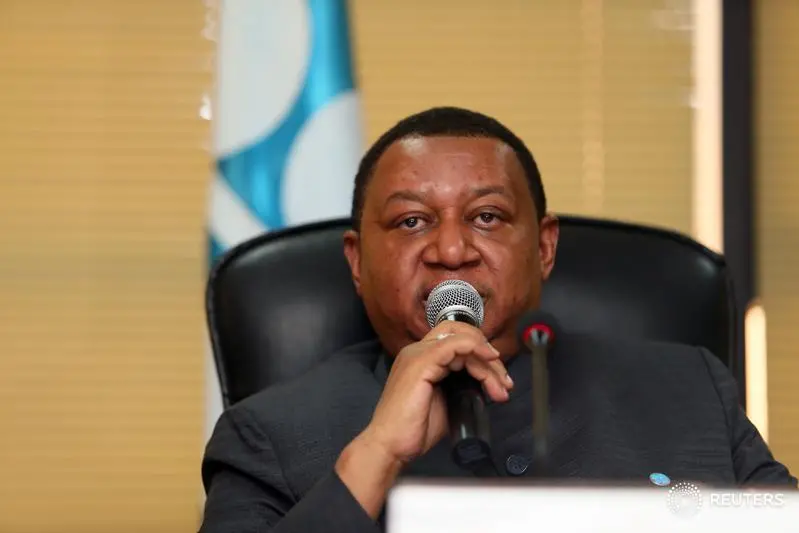PHOTO
LONDON- OPEC-led efforts to stabilise the oil market will be maintained, OPEC's secretary general said on Tuesday when asked about the consequences if the United States exits a nuclear agreement with OPEC member Iran.
U.S. President Donald Trump will announce on Tuesday whether he will pull out of the Iran nuclear deal. An exit has raised concern that Iranian oil exports could be cut, putting upward pressure on prices.
The Organization of the Petroleum Exporting Countries is in the midst of an oil supply-cutting deal with non-OPEC producers such as Russia that has helped erase a global glut and boosted oil prices to $76 a barrel , the highest since 2014.
A drop in Iranian exports due to a return of U.S. sanctions, plus involuntary supply losses in other OPEC members such as Venezuela would mean the supply cut would be significantly larger than intended.
"We have confidence in our leaders, within and outside OPEC, who have strongly supported our joint efforts with our non-OPEC partners to assist the oil market to restore stability after the worst oil cycle in history, to continue to provide leadership in these uncertain times," OPEC's Mohammad Barkindo said.
OPEC agreed to reduce output by about 1.2 million barrels per day in the deal. Its effective cut is closer to 1.8 million bpd due to involuntary losses in some countries, according to industry estimates, before any impact on Iran is considered.
The deal's original target was to reduce the excess in oil inventories in industrialised countries to that of the five-year average. This has virtually been reached, but OPEC is in no rush to wind down the supply cut.
"The rebalancing of the oil market is a long process that is now in its fourth year. It is still a work in progress and requires sustainability," Barkindo said.
Speaking earlier to CNN, he said that any factor that prevented the smooth running of the oil industry "will not be in the interest of the global economy" in reference to a U.S. exit from the Iranian nuclear deal.
The supply cut started in January 2017 and runs until the end of 2018. OPEC and its partners meet on June 22-23 in Vienna to review the agreement.
(Editing by Jason Neely, editing by Louise Heavens) ((alex.lawler@thomsonreuters.com; +44 207 542 4087; Reuters Messaging: alex.lawler.reuters.com@reuters.net))





















